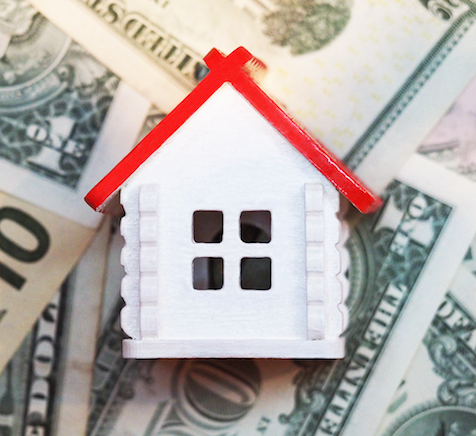Should I Sell or Rent Out My House?

You loved your house when you bought it, but life has taken a new direction and you’re ready to move. Maybe you’ve found a new job, you’re ready to move up to a bigger home, or you want to downsize. Now you’re wondering, should I sell or rent out my house? Either option can be appealing. Here’s an easy way to help you decide.
Should I Sell or Rent Out My House? Here’s How to Decide
Is the Neighborhood’s Value Increasing?
 Yes: You may want to keep the home and rent it out, if you can handle the responsibilities and rent will cover your expenses.
Yes: You may want to keep the home and rent it out, if you can handle the responsibilities and rent will cover your expenses.
No: You’ll lose money in the long run, definitely sell.
If your neighborhood’s value is increasing you may want to hold on to your home. Charge rent that will cover your property taxes and other expenses, such as home updates and repairs. This way, you won’t lose money while you’re in your new home, and you can sell your old home later on when it’s gained value. If your neighborhood isn’t gaining value, there’s no reason to hang on to your home. Sell it now, or you may lose money as rent prices and your home value declines.
How do you know if your neighborhood is rising in value? Take a look at what homes have previously sold for, and what they’re selling for now. Also, look at infrastructure in the area. Have parks, roads, schools, and the appearance of the area improved? This is a good sign that the area is increasing in value. What about business investment? If the nearby city has grown and there are quality employment opportunities, your neighborhood value will probably increase.
What if It’s a Bad Economy?
If the city center is contracting, buildings are abandoned, and prominent businesses have moved on, it’s a bad sign for the neighborhood. It’s probably time to sell, not rent, or your home value and rent prices will decline. However, if you’re entering a buyer’s market and the economy is in a slump, but you’re confident that your neighborhood’s values will bounce back significantly in a few years, it may make sense to rent.
You may lose money as you rent or if you can’t find renters and the home is vacant. However, you’ll make some money back when you sell the house after the market recovers. Estimate how much you’ll lose, how long you’ll have to wait, and how much your home value will increase. If it doesn’t make financial sense, sell the property, or you may end up losing more later on.
Do You Want to Be a Landlord?
 Yes: If you can handle the responsibilities, renting the home may be a great option.
Yes: If you can handle the responsibilities, renting the home may be a great option.
No: This will probably bring you more stress than it’s worth, consider selling.
Some homeowners assume that renting their home means making money while doing nothing. However, renting your home means you are responsible to your tenants. You’ll need to perform maintenance and repairs, resolve disputes, and take on other business activities.
To be a landlord, you should be ready to take on the following:
- Fix or replace appliances, clogged pipes, leaky sinks etc. at any time
- Address catastrophes like burst pipes, flooded basements or bed bugs
- Accept some damage like stained carpets, scuffed walls and broken tiles
- Be ready to address tenant disputes or eviction
- Brush up on legal requirements, such as safety inspections, insurance, and tax rules.
- Be able to securely run credit and background checks on potential tenants
If this sounds like more than you can handle, you’re better off selling, even if you can make some profit renting. However, if you’re confident that you’re leaving a lot of rent money on the table and letting go of a valuable investment by selling, consider working with a property management company. They will take care of these responsibilities for you. You’ll receive less in rent, but you’ll be able to keep your valuable investment.
Will You Make Money Renting?
 Yes: If you can make money renting and handle the responsibilities, you should rent out your home.
Yes: If you can make money renting and handle the responsibilities, you should rent out your home.
No: There’s no reason to rent if it doesn’t make economic sense. Definitely sell your home.
For many, this is the biggest consideration. If you won’t actually make money renting out your home, there’s no reason to take on the responsibilities. This can be somewhat complicated to figure out, but making these calculations will help you decide whether to sell or rent out your home.
Estimate and add up the following:
- Annual income from renting
- Tax deductions (see paragraph below)
Estimate these, add them up and then subtract them from the total above.
- Property taxes
- Mortgage and interest
- Insurance
- HOA fees
- Cost of repairs (water heater, appliances, roof, heating/cooling)
- Upkeep (paint, flooring, pipes etc.)
- Income tax on rental income
If your annual rental income and tax benefits are greater than your total expenses and tax payments, you will make money from renting. If you’ll make money, you should probably rent, but only if you’re confident that you can handle the responsibilities. If you won’t make money renting, there’s really very little reason to do it, and you’ll be better off reinvesting money from your home sale.
Tax Implications
To get the most accurate estimation, you’ll also want to factor taxes into this equation, but this can be a bit more complicated. For this, you should consult a tax expert. You’ll need to pay income tax on the rental income you make. However, you can deduct this based on your expenses, such as repairs, upkeep, and property taxes. You can also deduct the property’s depreciation. This can be approximately calculated like this: your property value minus your land value, divided by 27.5.
For example, if your property is worth $150,000 total, and the land is worth $50,000, you’ll be able to deduct about $3,636 ( [150,000 – 50,000] / 27.5). So, if you’re making $1,000 a month in rent for the entire year ($12,000), and you pay a total of $8,000 in expenses, you’ll only pay income tax on $364 (12,000 – 3,636 – 8,000 = 364). If your tax rate is 22%, you'll pay about $80 in taxes on your $12,000 rental income.
Essentially, thanks to property depreciation expense, you won’t pay taxes on about $3,600 of the income you made. Most properties don’t actually depreciate this much, and in fact generally gain value over time as the surrounding area expands and property becomes more desirable. However, when you rent your home, you’re running a business and your property becomes a business asset, and this is how business assets are taxed.
Once again, this process can get complicated, and there are other tax implications to consider as well. Consult a tax professional before making your decision.
Is it Legal to Rent Your Home in Your Area?
Yes: Great, this may be a good option for you.
No: Don’t rent. Skirting the rules can mean angry neighbors, angry tenants, and legal problems.
This is pretty straightforward. Some zoning laws, like those in many areas in East Lansing, restrict rental activities. If you’re not allowed to rent your home but you try to anyway, you can face fines and legal problems. Check to make sure your home is legal to rent first.
These are the most important factors to consider when deciding between selling or renting out your house. There are other factors to consider as well. Maybe you’re only moving temporarily, or you want to keep the home to rent to a friend or relative. Or, maybe you’re simply attached to your home and it’s hard to let go. Do your best to make this decision unemotionally, and keep in mind that tenants will not have the emotional investment that you do. With careful calculation and clear thinking, you can make a forward-thinking decision.


